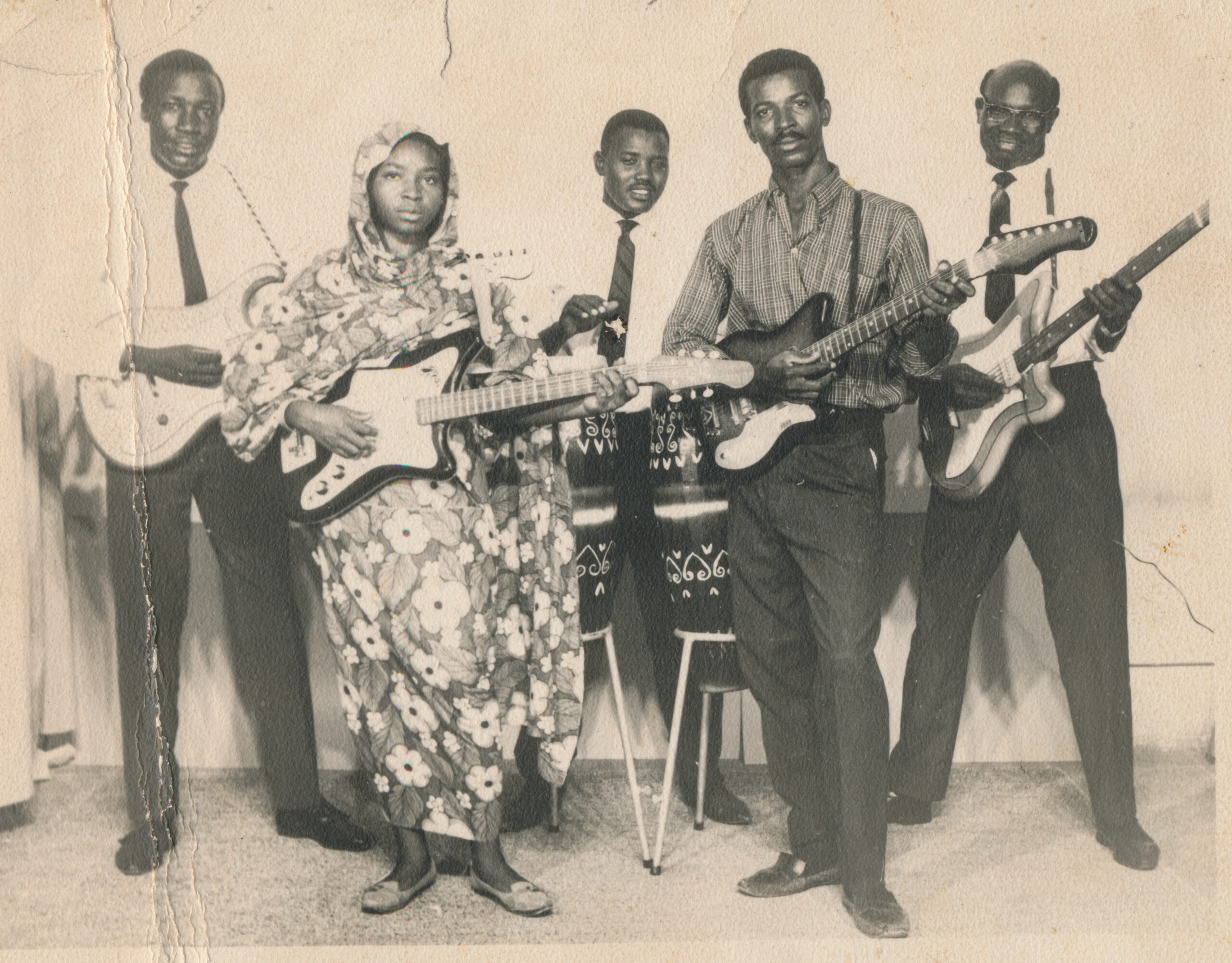DJ Habibi Funk and the power of cultural appreciation
In an interview with DJ Habibi Funk, we see the impacts of amplifying cultural music in Western media and beyond.
I came across Habibi Funk’s music in the most unexpected way. A friend of mine drunkenly posted an Instagram story, dancing in a tight venue in Beirut, Lebanon. The music that was being played caught my attention—but by the time I hit the next story, I forgot all about it.
Fast forward to when I was researching a young Egyptian actor named Ahmed Malek. An Algerian musician of the same name popped up on my YouTube search—his music was in collaboration with Habibi Funk. By then, the set that my friend shared snippets of on Instagram had been fully released on “Boiler Room’s” YouTube channel—an outlet that features the music of DJs around the world. I clicked over to Spotify, looked up Habibi Funk, and saved the playlists under his name.
Two years later, the show Ramy became available to stream on Hulu. As I watched, the soundtrack made me hesitate with a feeling of familiarity. Songs by Egyptian composer Hani Shanouda were present in each episode. I recognized the collection of songs from Habibi Funk’s playlists. I thought: maybe Habibi Funk had something to do with this? But how could a DJ be involved with selecting the soundtrack of a show, especially when the songs aren’t his?
I did some more research and came across Habibi Funk Records, a music label co-founded by Jannis Stürtz—otherwise known as Habibi Funk. I soon learned that Habibi Funk was playing a set in Toronto, and I immediately wanted to get in touch with him.
In a two-part interview—first conducted in the lobby of a Toronto high rise, and then in my friend’s car on the way to the venue where Habibi Funk was playing—Stürtz shared his musical inspirations and the meaning behind his record label. According to Stürtz, the main purpose of Habibi Funk Records is to promote music created mainly in the Southwest Asia and North Africa regions. His label features the works of Kamal Keila—a jazz composer from Sudan who was influenced by Ethiopian and Congolese sounds—and of late Moroccan singer Fadoul, who used Brazilian music to inspire his work.
While being a DJ is fun and has “a good synergy with the running of the label,” Stürtz doesn’t think of it as his main role. Instead, he uses his music knowledge to get in touch with the many artists whose songs the label re-releases. Being a DJ enables Stürtz to have face-to-face interactions with music creators, allowing him to “build a working relationship” with artists from older generations who are not as familiar with promoting their music on the internet. Through these partnerships, Habibi Funk Records redistributes older releases in exchange for temporary rights that allows the label and the artists to evenly split profits. Stürtz finds that providing artists with a moment “in the limelight” is the most rewarding part of his work.
Stürtz further clarified that he stopped using the word “discovered” within the context of his work. He realized the problematic nature of the word, due to its associations with colonialism. In the past, Stürtz faced accusations of cultural appropriation online—for profiting off Arab culture as a German white man. I asked him about those accusations and immediately sensed agitation. Stürtz emphasized that while he “welcomes critical interpretations of his work, [he] tries to be as transparent as possible in a business where [cultural appropriation] is far from unheard of.”
To value each artist’s work and story, the label prints a summary of each license deal in the booklets that accompany the records sold. Stürtz says that he understands the sensitivity that comes with distributing non-Western music, but he states that he “will not see eye to eye” with those taking issue with his identity. Additionally, Stürtz finds that many of those who attack him for his work online don’t take the time to learn about what he’s actually doing. He has found himself engaging in conversations with people who mistook him for other white creatives who have inaccurately attributed him with “shitty mixes.”
On the contrary, many listeners appreciate Stürtz’s work and share his passions. Stürtz shared some fun experiences that he had in the days leading up to the interview. He visited Hani Shanouda in his Cairo home with Ramy Youssef—an American comedian who stars in Ramy—along with other fun but “hectic” occurrences. His occurrences stand as testament to how culturally rewarding Habibi Funk Records is. His label remains appreciated by the artists who feel represented by his projects.

